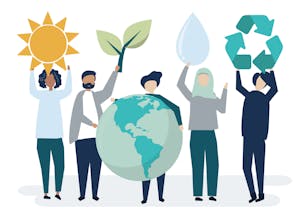- Business Management Tips
- Industry Insights
- Local Strategies
Start Here: A Sustainability Checklist for Tour Operators
All Skill Levels
Join hundreds of other operators and REGISTER NOW for Spark 2024 New Orleans October 13-15th!

As we look forward to the continued return of travel in 2021 we do so after a year where we collectively re-examined our relationships with work, technology, businesses, and the planet. One silver lining to 2020 was the ability to – quite literally – see our impact on the Earth more clearly.
Satellite images shared by NASA and the European Space Agency and studies published by the Centre for Research on Energy and Clean Air revealed that during COVID quarantines, carbon dioxide emissions and nitrogen dioxide pollution dropped in countries around the world. Venice’s famous canals – a hugely popular travel destination – are clearer and cleaner due to the lack of water traffic. All of this data has made it starkly clear that human choices and patterns of behavior affect our planet.
Ecotourism has been a growing trend in our industry for many years, with travelers taking various measures to reduce their impact by staying at sustainable accommodations, choosing electric vehicles for transportation, and taking other small steps such as bringing reusable water bottles on their tours and activities.
It goes without saying that travel trends were hugely impacted by the pandemic, bringing a resurgence in local travel and past times like road trips. But even when international travel becomes more widespread again, there is sure to be a renewed focus on sustainable travel and tourism and a continued interest in reducing travel’s impact on the environment.
 Your Carbon Footprint
Your Carbon FootprintOne of the ways in which travelers can reduce their impact is by eliminating or cutting back on air and car travel. According to a study published in Nature Climate Change, emissions from tourism make up 8% of the global total, with air travel being the largest contributor.
For travelers, reducing air and car emissions could mean enjoying hikes and nature walks in their own area, going to a local beach or lake, backpacking throughout their state, or for cycling enthusiasts, bikepacking!
Understandably, many people still plan to fly to their dream destinations, whether it’s a once-in-a-lifetime trip to Asia or a classic Hawaiian vacation. While airlines explore alternative fuel options to make air travel more sustainable in the future, there are steps travelers can take now to reduce their impact, such as:
Once at their destination, travelers can continue to be mindful of their impact by making choices such as exploring with local tour operators who care about sustainability and are transparent about their practices, impact, and how they support their local community.
Travel is an important part of life, allowing us to expand our horizons, learn about new places, and ultimately inviting us to connect with each other across borders, languages, and cultures. The way we travel may change as a result of the pandemic, but that change can be positive.
At FareHarbor we welcome the opportunity to remember why we travel — to see the beauty of the world and its inhabitants — and change our practices to better serve our planet and the people in the places we visit.
If you’d like to learn more about how to appeal to sustainably-minded travelers, read our guide on ecotourism and voluntourism.